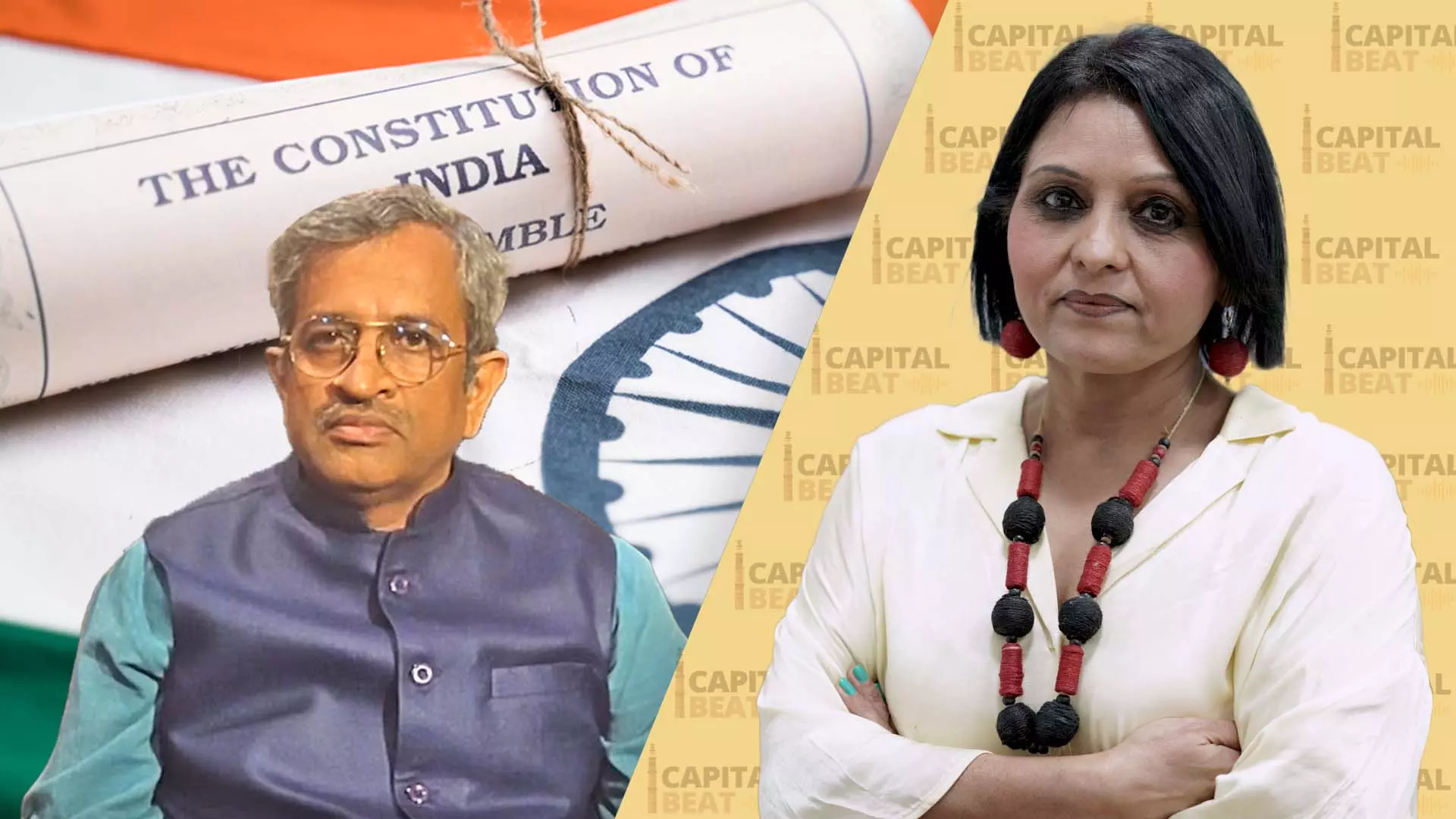
‘130th Constitution Amendment Bill can be misused to topple rivals before polls’ | Capital Beat
SC advocate Sanjay Hegde explains Bill that proposes automatic removal of ministers, CMs, and even the PM if they remain in custody for 30 consecutive days

In this episode of Capital Beat, senior advocate of the Supreme Court Sanjay Hegde weighs in on the contentious 130th Constitution Amendment Bill, tabled by Union Home Minister Amit Shah in the Lok Sabha on Wednesday, August 20. The Bill proposes automatic removal of ministers, chief ministers, and even the prime minister if they remain in custody for 30 consecutive days. While the government argues it will weed out “criminal netas,” the Opposition fears it could destabilise elected governments through politically motivated arrests.
Was there a need to bring in this amendment at all?
The need is often the perception of the government of the day. What triggered this was the Delhi chief minister’s arrest last year, after which he refused to resign and continued running the state from jail. With no constitutional bar in place, the Centre saw a precedent forming. Similar issues arose with ministers like Satyendar Jain and Senthil Balaji. The government likely felt compelled to plug this gap through a constitutional amendment, which is now referred to a select committee for detailed examination.
Also read: Shashi Tharoor differs with Congress on 130th Amendment Bill
The clause on automatic disqualification after 30 days in custody is being called dangerous. How should the public view this?
This is not about targeting all “criminal netas” — it applies only to those arrested in cases carrying a punishment of five years or more. A politician may have multiple charges, but as long as there’s no arrest, they remain untouched. Once arrested, if they don’t secure bail within 30 days, they lose their office.
On paper, the law appears neutral. But in practice, it gives significant power to police officers, judges, and lawyers. A police officer can threaten arrest under stringent sections. Judges’ decisions on bail can make or break a political career. And lawyers capable of expediting hearings could wield disproportionate influence. The real danger lies in misuse — particularly by governments seeking to topple rivals ahead of elections.
Is this provision open to political abuse?
Absolutely. Imagine an opposition-ruled state nearing elections. If its chief minister is popular and stands a strong chance of re-election, this provision gives ruling parties at the Centre an incentive to orchestrate arrests that keep him or her in jail for over 30 days. That would fracture the ruling party and destabilise the state.
We’ve seen parallels in Pakistan, where the most popular leader was jailed and his party members defected under pressure. Smaller states like Goa or Manipur are especially vulnerable — one arrest could completely change the government’s composition.
Also read: TMC alleges BJP ministers assaulted women MPs in Lok Sabha
Could the amendment be challenged in court?
Nearly every constitutional amendment is challenged these days. This one could be tested against the “basic structure” doctrine. On the face of it, the government frames the bill as a high moral principle — that governance cannot be run from jail. But history shows that harsh laws are often misused.
We saw this with TADA and POTA, both brought in for combating terrorism but repealed after rampant misuse. This amendment risks falling into the same trap of “absolute power corrupts absolutely.”
Why include the prime minister in this provision?
The prime minister is primus inter pares — the first among equals. So, in principle, the prime minister can be treated like any other minister. But imagine a situation where the president and prime minister are at odds. If the prime minister were arrested and held beyond 30 days, the office could automatically fall vacant, creating a constitutional crisis.
What about the argument that the Representation of the People Act already disqualifies MPs and MLAs on conviction? Why was this needed?
Conviction automatically leads to disqualification. But trials take years, sometimes decades. The government’s case is that in situations where allegations are serious enough for an arrest and bail is denied, ministers should not continue in office indefinitely. This amendment attempts to fill that grey zone.
Also read: Amit Shah tables 3 Bills in LS to remove PM, CMs; Oppn tears copies in protest
Opposition leaders like Asaduddin Owaisi and Manish Tewari have called this Bill draconian. Do you agree?
Owaisi argues it hands police and executive agencies the role of judge, jury, and executioner. Tewari says it overturns the principle of “innocent until proven guilty” and even gives police officers power over the prime minister. These concerns are not misplaced.
Policemen have framed people, planted evidence, and misused laws before. If a chief minister or minister becomes beholden to a police officer’s decision not to arrest, that officer effectively becomes their boss. This illustrates how dangerous the provision could be.
Are the three contentious Bills — Constitution Amendment, J-K Reorganisation, and Union Territories Amendment — all linked?
Yes. They all serve the same end goal: the 30-day clause that forces ministers or chief ministers to vacate office if in custody. The difference lies in application. For the states and the Union government, it requires a constitutional amendment. For Union territories and Jammu & Kashmir, separate legislation covers their unique status.
The debate on the 130th Constitution Amendment Bill has shifted political discourse sharply. While the government insists it is about accountability, critics warn it could be a tool to topple governments and erode democracy.
The content above has been generated using a fine-tuned AI model. To ensure accuracy, quality, and editorial integrity, we employ a Human-In-The-Loop (HITL) process. While AI assists in creating the initial draft, our experienced editorial team carefully reviews, edits, and refines the content before publication. At The Federal, we combine the efficiency of AI with the expertise of human editors to deliver reliable and insightful journalism.

